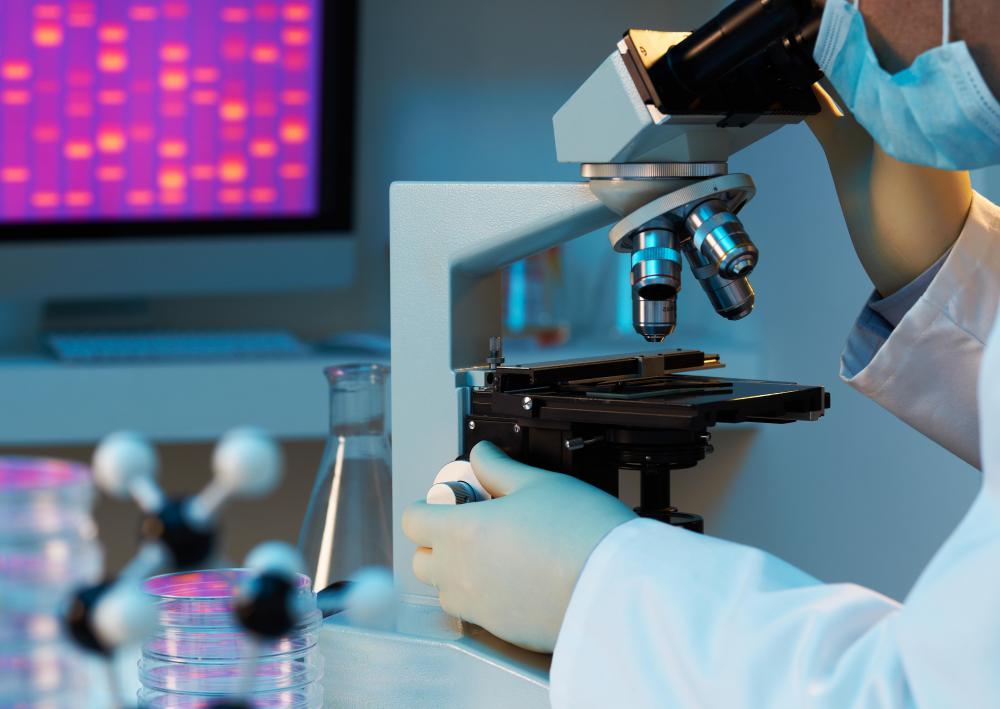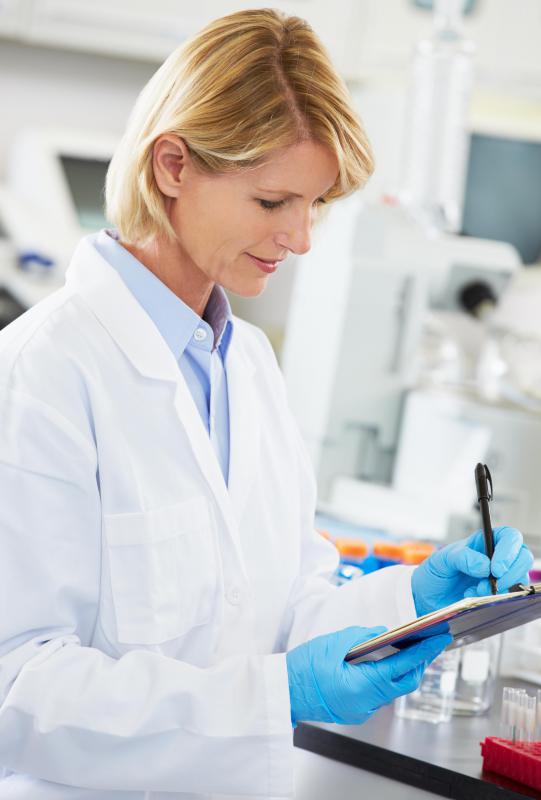At PracticalAdultInsights, we're committed to delivering accurate, trustworthy information. Our expert-authored content is rigorously fact-checked and sourced from credible authorities. Discover how we uphold the highest standards in providing you with reliable knowledge.
How do I Become a Bacteriologist?
A career in bacteriology, the study of bacteria, requires a bachelor's degree at a minimum. For people interested in being at the cutting edge of research and development, graduate-level work will be required to become a bacteriologist. In addition, there are significant continuing education requirements for people who work in this field. Someone who wants to become a bacteriologist should plan on studying for life.
High school students interested in bacteriology careers can get a head start by taking extra math and science electives. Biology and chemistry are both very valuable courses to take as soon as possible. To start addressing college prerequisites, students may also want to consider taking classes at a junior college or college by arrangement. These classes provide more advanced work and may allow a student to skip some first year courses in college.

A bachelor's degree in a topic like biology or bacteriology can prepare someone for work as a laboratory technician. This type of work involves analyzing and processing samples, preparing specimens, and performing some microscopy work. Lab technicians are not involved in research and usually their employment opportunities are limited. Consequently, someone who wants to become a bacteriologist may want to plan on attending graduate school in order to access more jobs in the field.

Taking advantage of internships, fellowships, and research opportunities is strongly recommended for an undergraduate student who plans to become a bacteriologist. This work can provide the student with ideas for graduate level research in addition to being very useful for graduate school applications. Admissions departments look for students who demonstrate interest and initiative, and the more elective work a student does as an undergraduate, the more promising that student will appear to a graduate department.

A master's degree in bacteriology can prepare someone to become a bacteriologist who works in government, private, or institutional laboratories. Receiving a PhD is even better. With a PhD, most career options in bacteriology are wide open, especially once that degree is combined with experience as a researcher. People who are interested in teaching should definitely plan on getting a PhD, as this degree is usually required for people teaching at the university level.

Bacteriologists work with a wide range of material and in an assortment of fields from pharmaceutical development to epidemiology. Pay for people with advanced degrees can be high and accompanied with benefits such as pension or retirement plans. While working as a bacteriologist, people usually keep up with changes in the field through memberships in professional organizations, conferences, and research and publication of their own.
AS FEATURED ON:
AS FEATURED ON:
















Discuss this Article
Post your comments